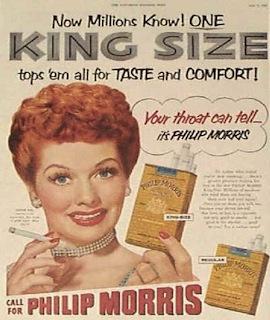 Stop Smoking Cleveland - From Washington D.C., Plain Bureau Chief Stephen Koff, brings to light (pun intended) a challenging question:
Stop Smoking Cleveland - From Washington D.C., Plain Bureau Chief Stephen Koff, brings to light (pun intended) a challenging question: "Should trade treaties, which encourage the global flow of goods and services, trump public health and safety?"
In Steven's article from Cleveland.com, there comes this question that I hadn't considered. What if all these restrictions on cigarette packaging and marketing could actually violate international trade rules? This is the debate on tobacco and trade right now championed by Sen. Sherrod Brown who wrote a letter to Obama administration asking that basic question.
How this pans out will determine how hard (or not so hard) it is going to be for Big Tobacco to challenge a country's laws and regulations regarding the marketing of cigarettes. The tobacco industry is playing the free trade card. It seems their logic is; if it has worked for the steel industry and the textile industry, maybe Big Tobacco can take a shot and get busy working the system in the trade courts.
Big Tobacco is already attacking package restrictions in the land down under and in Uruguay.
Packaging laws in both countries are designed to inhibit the ability of flashy marketing and style to influence smokers.
Tobacco giant Philip Morris says this is a violation of their free-trade rights. Anti-smoking advocates want to make it even harder for Big Tobacco to use this "free-trade" argument to fight public health laws, but Brown and others feel the Obama administration isn't fully helping with the cause.
So here's the question: Does a free nation have the right to determine how a product is marketed in their country? Especially if that product is a danger to public health.
"The Trans-Pacific Partnership Agreement, specifically state that countries have a right to uphold their tobacco rules and laws, despite the free-trade goal of an unhampered exchange of agricultural products."
This trade agreement gives preference to a country's health policy over a company's trade rights.
The Obama administration, reversed course on this last month which is why Brown and company is upset. They are looking for Obama to go back to the earlier proposal, which is equally important "that cigarette smoking is deadly and countries have a right to regulate and restrict the product."
The rest of Koff's report goes on to show the struggle of the Obama Administration trying to burn the candle on both ends and again avoid making a clear and decisive decision.
Here's the bottom line and my two cents.
1. A sovereign nation trumps a corporation all day long
2. Consumers since Adam and Eve have a God given right to choose
3. While tobacco is a plant, it should be treated and regulated like a drugs, not agriculture.
An of age consumer who wishes to use tobacco should have every right to do so. The free nation that the tobacco is sold in has every right to determine exactly how and where that product is sold and how it can be used in a public place. The next step then is to eliminate the whole agriculture crap. Tobacco, while a plant, is also a drug and should be treated as such.
Why the gov needs to complicate this to such a degree is beyond me.
Said Brown: "It's too weak. Americans are willing to support international agreements when there is a clear public good," he said in his letter. But in the case of tobacco, "such an upside-down approach will lead to greater global public health risk, disease, and premature death."
You can read Stephen's full report here: http://www.cleveland.com/open/index.ssf/2013/09/did_obama_administration_duck.html
Make sure to put your two cents in on it too...